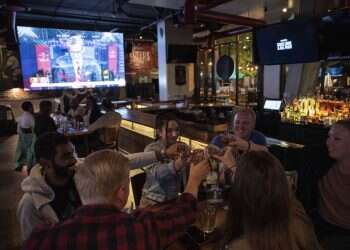The Knesset held a commemoration meeting on Sunday to mark 80 years since the Babi Yar [Babyn Yar] massacre, the symbol of what is known as the "Holocaust of the Bullets," and which began on the eve of Yom Kippur.
Follow Israel Hayom on Facebook and Twitter
In just two days, the Nazis murdered nearly all the Jews in Kiev: 33,771 people. During the German occupation of Ukraine (1941-43), nearly 100,000 victims were murdered and buried at Babi Yar, the overwhelming majority of whom were Jewish, but also included opponents of the regime, the mentally ill and Roma people, making it the largest mass grave in Europe.
The meeting was attended by Knesset Speaker Mickey Levy; Diaspora Affairs Minister Nachman Shai; chairman of the Babyn Yar Holocaust Memorial Center Natan Sharansky; Yad Vashem chairman Dani Dayan; World Zionist Organization and acting Jewish Agency chairman Yaakov Hagoel; and Association of Ukrainian Immigrants in Israel chairman David Levin.
"The massacre at Babi Yar is one of the worst single atrocities humanity has ever known, as more than 33,000 Jews were murdered, shot to death, simply because they were Jews," Levy said.
Sharansky called on the Israeli government and Holocaust institutions that had visited the German extermination camps in Poland to visit Babi Yar.
"There were two methods to the extermination of the Jews," he explained. "Cold-blooded murder with bullets and burial in mass graves throughout Eastern Europe, of which Babi Yar is the symbol, and mass, systematic extermination using gas in camps established by the Nazis in Poland. In order to understand the entire story of the extermination of the Jews in-depth, I call on the Israeli government and anyone who has visited Poland to visit Babi Yar, as well."
Prior to the meeting, Levy presented a medal on behalf of the Knesset to the last survivor of Babi Yar, Michael Sidko, who was just six years old when he witnessed Nazi soldiers murder his infant brother Volodya, his younger sister Clara and his mother, whose screams Sidko heard as she was shot to death in the forest of Babi Yar.
Sidko and his brother Grisha survived the Holocaust, thanks in part to a Polish neighbor who took them home and passed them off as her own sons until the end of the war.
Levy said: "I could not help but be moved and to shed a tear listening to Michael's heartbreaking story, how he saw his dear family taken away from him in front of his own eyes. I salute Michael for his heroism, and I am grateful to him for sharing his story with me, and I was honored to present him with a medal of recognition on behalf of the Knesset, on behalf of Israeli democracy. I reassured Michael that the memory of his family, along with all the victims of Babi Yar and the Holocaust, will be safeguarded forever.
"Michael's story is intertwined with the story of the State of Israel, which arose from the ashes of the Holocaust, in order to stop the shedding of Jewish blood and to build a home for the Jewish people in the land of their ancestors," he continued. "We must maintain the security, and the economic and social strength of the State of Israel, which together are the best guarantees for the future of our country, and for our ability to stand by the vow we made to Michael and all the victims of the Holocaust: Never again."
Sharansky promised Sidko that the names of his mother and siblings would be mentioned at the official ceremony to mark the 80th anniversary of the massacre, due to take place in Kiev on Oct. 6.
Reprinted with permission from JNS.org.
Subscribe to Israel Hayom's daily newsletter and never miss our top stories!




